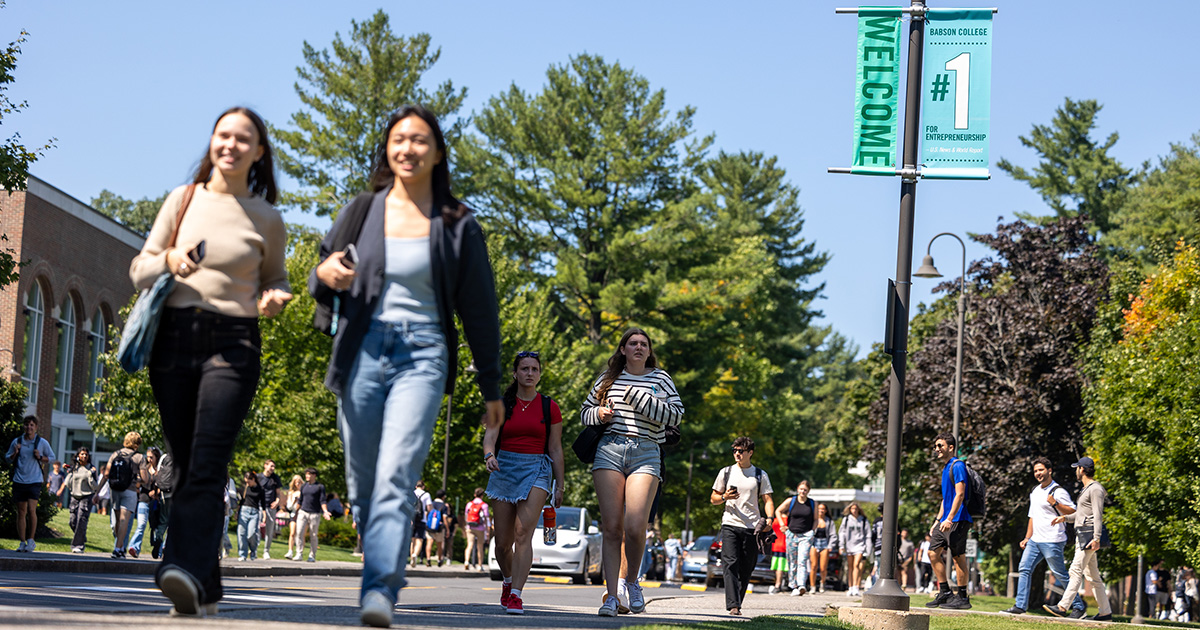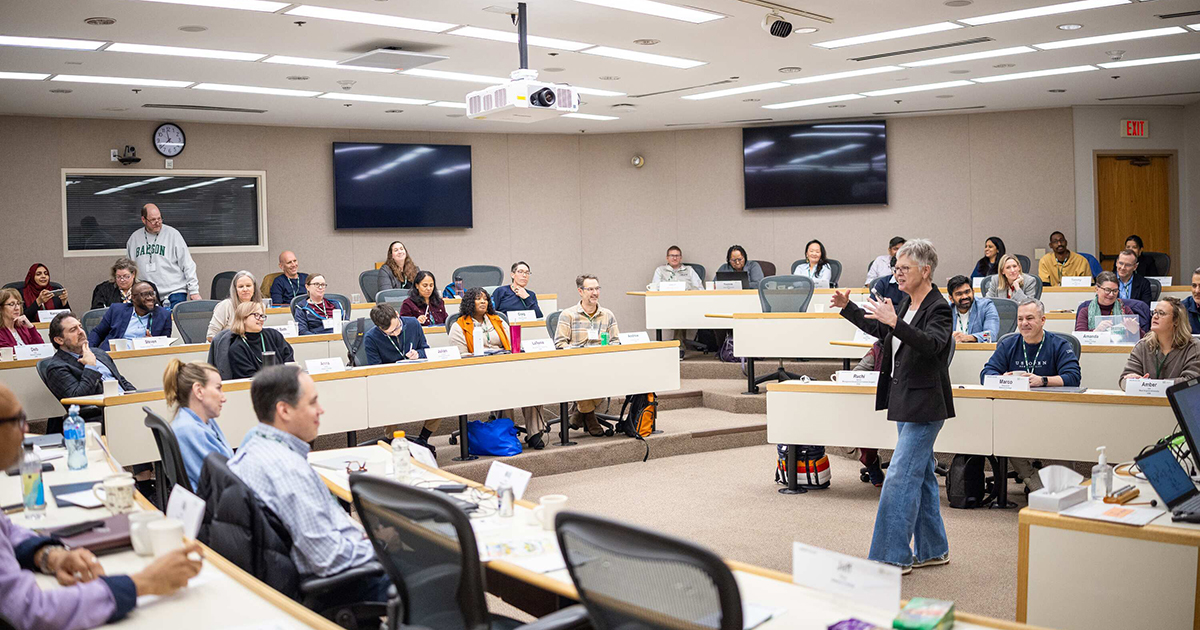Breaking Down the 4 Pillars of Self-Efficacy: Part IV

While women’s entrepreneurship is on the rise, a major success gap remains in the perceptions of new entrepreneurs: only 46% of women believe they have the skills and knowledge needed to start a business, compared to 61% of men.
This belief as to whether an individual has the abilities perceived as central to their success is known as self-efficacy. And, self-efficacy plays a major part in determining our chances for success; in fact, some psychologists rate self-efficacy above talent in the recipe for success. Babson College’s Women Innovating Now (WIN) Lab® breaks down four pillars of self-efficacy in a four-part series. Don’t miss parts I, II, or III to explore more about building entrepreneurial women leaders.
Part IV: Mastery Experiences
In her work on courage, feminist philosopher and theologian Mary Daly writes: “It’s like you learn to swim by swimming—you learn courage by couraging.” The concept of developing courage by acting courageously reinforces the fourth pillar of self-efficacy: mastery experiences. Once you have performed a task, you have engaged in a mastery experience, leaving you much more likely to believe in your ability to succeed in the future.
Research shows that half of all women report feelings of self-doubt about their performance and careers, compared to less than one-third of their male counterparts. In order to overcome that deficit in self-efficacy and accomplish their entrepreneurial goals, research suggests starting with small, achievable projects.
“WIN has helped me embrace being an entrepreneur by breaking down the mystique of this career path and providing specific tactics to build an organization.”
The idea is to shorten the learning cycle by tackling a smaller project, to gain early feedback and iterate on those small tasks before taking on the complex tasks associated with the bigger project. The individual tasks that are part of any major project take practice. Women entrepreneurs must focus on building self-efficacy like a muscle—moving through spaces of uncertainty knowing that by taking the first step, gaining feedback, and iterating on that opportunity, they are engaging in mastery experiences, and increasing their chances of future success.
Building self-efficacy through engaging in mastery experiences goes to the heart of the entrepreneurship pedagogy at Babson College, which also drives the WIN Lab. This pedagogy, known as Entrepreneurial Thought & Action®—or ET&A™—is the art of thinking big, while taking small, data-driven steps to accomplish your business goals. The process starts with desire—how one would like to act on a passion to build, create, or change something. Next, identify one step to take toward that vision, based on the resources at hand, and experiment. Take that first step, act courageously, overcome the risk, make a mastery experience, and then continue moving forward toward your larger goal.
Posted in Insights



